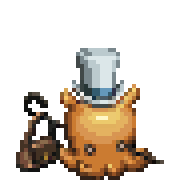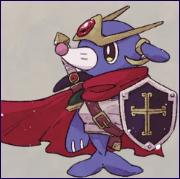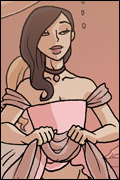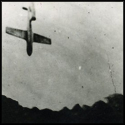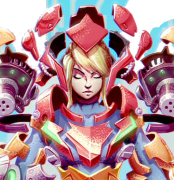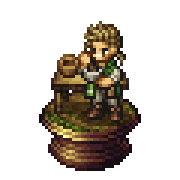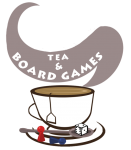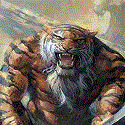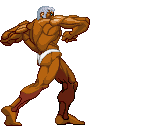|
Shes Not Impressed posted:I had been holding off on it because of the price and the prospect of teaching it to my friends, but I finally gave in after a few posters made persuasive arguments but they're probably just slave traitors anyway. It hasn't arrived yet. It's really great, I don't think you'll be disappointed.
|
|
|
|

|
| # ? May 16, 2024 00:33 |
|
Bleh. I just had a longer look at the "RESISTOR_" KS, which hit its funding first day. It looks... uh... not great? I mean, did you ever wish Tsuro was played on a 2x8 board, with pieces that only worked for a certain player? Yes? Then read on! First, lots of the mechanics are keyed off of "I know what's on the other side of this card, and you don't". Jokes on you, because I know what's on the other side of that card too... because I've played the game 3 times and the cards don't magically exchange fronts and backs with each other between plays. To be clear, the ratio of "unique card faces" to "total cards" looks reasonably high, so it's not even like "oh, this card could be one of 20 or something". I didn't bother looking at the P&P, but there's just not many cards (and you go through a bunch) so my estimate is you could probably narrow it down to a few possible backs for each visible front. Did you want a game where a key strategy is memorizing what faces go with what backs? Can I have a copy of the card list sitting open next to me? Looking up cards on a list does kind of sound like a fun alternative to playing this game. Or are we going to pretend that nobody would bother memorizing stuff? If so, we have a 2 player abstract with a pasted on theme, only short term tactics (because the board gets clobbered between turns), and that isn't intended for competitive play (screw you, try hard memorizers!). I'll be honest, that's not a crowded genre - maybe its an underserved market? Or, even supposing we can't form long term memory somehow, do you want a game where a key part is memorizing the back of cards as they're played? I mean, they mention that you do this, but clearly the designers aren't too big on this themselves; in the video, the guy fails to remember pretty much the first card that gets played. If you aren't intentionally making memorization a key part of the game (perhaps because memorizing is really boring) maybe just don't have it? (Sidenote: if you're the designer, surely you put some thought into how the backs and fronts should be lined up? Wouldn't you, like, remember how they go? At least a bit?) And speaking of the demonstration video, the first move of the first turn replaces every other card on the board, some of them twice (and shrinks the board by a quarter). Great! Who doesn't love random board resets that take one card (drawn from a single, random deck) and no other resources? Who doesn't like resolving chains of actions that can involve multiple pointless rewrites of board states? To be fair, the random board resets do have a limit: you can only reset the opponent's progress if you draw the right color resistor, and can figure out where all your opponents lines are (hint: that is the only information on the board, so look at the board to see where their big line is). This brings up some strategy ideas: 1. Draw the cards with your lines on them, so that you can make progress towards your goal instead of helping with your opponent's. If you forget to draw cards that are the right color, try memorizing the card backs so you know which of your unfavorable cards to play in what orientation, and then flip over. (Easy to learn; difficult to master!) 2. Draw the resistor cards with your opponent's lines on them, so you can blow up all their stuff if they're close to winning. Oh, and also try to draw the resistors with your color lines, so you can waste them, instead of having your opponent use them to stop you. TL;DR: draw resistor cards. 3. If you forgot to draw a resistor and your opponent is getting close to your base, use your flip action to break their chain! PS: they also have to do one flip action.. so uh... flip the card very hard so it's difficult for them to unflip. God this is embarrassing just to write about this garbage. OK, sorry for long rant. I just have some "just world" brain breach when I see reasonable looking games languish while pretty suspect ones get lots of hype. I mean, I hate Broken Loose - really, I do, and he's wrong about oh so many things - but he's clearly put some thought into his game. I see no blatant reason to doubt that: it will hold up to a reasonable number of plays, that you'll get better at it as you play, that you'll get some stupid man-baby "hey-honey-let's-eat-spaghetti-with-egg-beaters" amusement out of the restrictions, there's been some thought and clever ideas put in, and uh.. generally that the thing will function as a game. Resistor, by contrast, seems to be a not very clever idea, where they couldn't figure out how to solve some obvious problems, but uh.. it kind of technically functions so hey let's release it.
|
|
|
|
I remember reading from either some game designer or someone in this thread about how good game designers try to find a way to eliminate the probability of a certain player being RNG screwed or a game being lovely, as even a 1 in 100 chance may pop enough to ruin games and give a bad impression. Alternately, play games where you can use bad luck to your advantage. My friend who claims to have bad luck with dice (though I definitely think he's exaggerating on that front) wiped the floor with us in his first game of Quantum since he kept rolling low in combat, where lower number wins. Of course, he had solid strategy and bought the "you may reroll an attack die" card early on, so there's a lot more than some lucky rolls.
|
|
|
|
On a similar note, the Paperback guy has a new KS, it's called Burgle Bros, and it looks... disappointingly lame. Lots and lots of randomly generated cards, basically, to determine if you manage to succeed, with from what I could tell little strategy. Though Rahdo Runs Through really didn't sell it well.
|
|
|
|
Rolling low numbers when low numbers are good isn't bad luck!!
|
|
|
|
quote:On a similar note, the Paperback guy has a new KS, it's called Burgle Bros, and it looks... disappointingly lame. Lots and lots of randomly generated cards, basically, to determine if you manage to succeed, with from what I could tell little strategy. Though Rahdo Runs Through really didn't sell it well. Disappointing... but it's not utterly unbelievable that he wouldn't have a great follow up. Paperback is a fairly straightforward implementation taped onto a really excellent idea (that being "let's have a deckbuilder where you buy letters and your hands make words"). PS: Buy Paperback. It's really good, and works with a lot of different kinds of people. Also, it has fun art.
|
|
|
|
Archipelago is surprisingly good and probably the only semi-coop in existence. Its the game Dead of Winter wishes it could ever be.
|
|
|
|
Edit: Semi-beaten by CountblancMega64 posted:Alternately, play games where you can use bad luck to your advantage. My friend who claims to have bad luck with dice (though I definitely think he's exaggerating on that front) wiped the floor with us in his first game of Quantum since he kept rolling low in combat, where lower number wins. Of course, he had solid strategy and bought the "you may reroll an attack die" card early on, so there's a lot more than some lucky rolls. Even if we work under the assumption that a person can inherently have Good or Bad Luck, rolling low in a game where rolling lower is good is an example of Good Luck, not Bad. If you can somehow use Bad Luck to your advantage, it ceases to be Bad Luck. Honestly, I think that a person who inherently rolls low in dice games (which would more likely be due to badly made dice) is even more implausible that a person who inherently rolls poorly (since said person can hit the bell curve perfectly in values and still skew poorly in results if the parameters for successful rolls keep changing).
|
|
|
|
Lord Frisk posted:Archipelago is surprisingly good and probably the only semi-coop in existence. Its the game Dead of Winter wishes it could ever be. Yeah I need to get that and Dominant species but I generally play board games in a cafe* with smallish tables which if we use three can just about fit Kemet. *Not a board game cafe per se just a cafe that has a board game group meeting one evening a week sandwiched between nights of TCG play.
|
|
|
|
Countblanc posted:Rolling low numbers when low numbers are good isn't bad luck!! I played Yggdrasil (Ghost Stories, basically) with a guy who claimed to have terrible luck. He chose the character who can reroll dice in an effort to mitigate that bad luck. He didn't fail every roll, though he failed a disproportionately high amount. However, every single time he rerolled, he got the exact same result the second time.
|
|
|
|
Does anyone know if the Mage Wars app actually helped in making a spell book? That was the worst part of the game by far
|
|
|
|
Paper Kaiju posted:Edit: Semi-beaten by Countblanc I used to get irritated at people who would start a D&D session by rolling a bunch of dice to see which ones were "lucky" that game. I tried to explain to them that either what they were doing didn't work, in which case it was stupid, or it DID work, in which case THEY WERE CHEATING. I don't believe in people being inherently lucky or unlucky but if they do then they are attempting to use magic to get an advantage in a game. The fact that it doesn't work isn't really the point.
|
|
|
|
Paper Kaiju posted:(which would more likely be due to badly made dice) Though that would be mitigated by playing a variety of dice-based games that each have their own dice. It was mostly a joke anyway, as while my friend believes he has bad dice luck, that's because he remembers his own bad rolls more often. To me, his rolls are as average as anyone else's. The idea is more making the best of what you've got or whatever. JoshTheStampede posted:I used to get irritated at people who would start a D&D session by rolling a bunch of dice to see which ones were "lucky" that game. I tried to explain to them that either what they were doing didn't work, in which case it was stupid, or it DID work, in which case THEY WERE CHEATING. My group sometimes does this in games, though all of us are also aware that that's not how probability actually works. It's funny as a dumb sorta joke.
|
|
|
|
Dr. Video Games 0069 posted:I played Yggdrasil (Ghost Stories, basically) with a guy who claimed to have terrible luck. He chose the character who can reroll dice in an effort to mitigate that bad luck. He didn't fail every roll, though he failed a disproportionately high amount. However, every single time he rerolled, he got the exact same result the second time. This is why giving players the option of rerolls at the exclusion of other perks is bad design; you're essentially making players pay for an ability that may never work, often while other players are getting abilities without that risk. Even if the rerolls don't come with an opportunity cost, you're just putting a Band-Aid on a bullet wound. JoshTheStampede posted:I used to get irritated at people who would start a D&D session by rolling a bunch of dice to see which ones were "lucky" that game. I tried to explain to them that either what they were doing didn't work, in which case it was stupid, or it DID work, in which case THEY WERE CHEATING. I guess my point was in highlighting the absurdity of using that as a rational, by taking it to it's logical conclusion? I mean I'm not really disagreeing with you, here.
|
|
|
|
Countblanc posted:Rolling low numbers when low numbers are good isn't bad luck!! This reminds me, I recently did a test design for a game called Pandemonium which was heavily dice-based, but all numbers had utility. It's a good demonstration in general of how to properly implement repeatable-outcome RNG (ie, dice).
|
|
|
|
Broken Loose posted:heavily dice-based, but all numbers had utility
|
|
|
|
EvilChameleon posted:Some people are talking big about Alien Artifacts. I've only played RftG with the non-AA expansions. Can someone expand on what makes it so great? (I assume most people don't play with the orb mini-game thing). I love Race but I don't think I want to buy 5 boxes or whatever, if AA makes it a complete awesome game then I'd love to buy just the base game and AA. It really shows that AA was their fourth expansion and had the longest development time. The number of cards it adds to the deck is just right (more than TGS, less than TGS + RvI), it beefs up military strategies without massively changing the game's tempo, it gives strong options for every world colour as well as development strategies and hybrid paths. All this is achieved without adding complex abilities which means it's actually pretty reasonable to use for teaching newbies. I do like goals from TGS but AA is just a better card set. Ideally I would probably play Base + AA and add appropriate goals in from the other expansions if I felt like it. Broken Loose posted:You totally highlighted my issue, though. You can't do anything in Race until you get an arbitrary amount of prerequisite cards. Blue and brown production doesn't work unless you find consume powers. Military doesn't work unless you have target worlds to conquer. Generalized strategies don't give any points unless you have a 6-cost development. Nothing in the game guarantees that you'll have all the pieces of a coherent strategy available to you at any given time, and nothing in the game prevents a player from just randomly drawing all the pieces they need with no difficulty. It's telling that my enjoyment of Race SKYROCKETED once Prestige Search was added to the game. It sounds like you want a game where you can build an engine to run a reasonably certain strategy and get big payoffs out of it. That's fair, and RftG is definitely not that game. Broken Loose posted:Here's the big kicker: I'm unlucky. Whether or not you believe it is your call, but, if a game can arbitrarily gently caress me over, assume it will. Just imagine the perspective of a player who absolutely draws the wrong cards at any given point in the game and assume that every action that player takes is intended to overcome that obstacle. My journey of learning Race was frustrating and tedious; several months of grinding against AIs and YCS buddies to learn the deck and all the synergies. In the end, I'm only slightly better at winning at Race, but I'm astronomically better at predicting who will win based off the first 2 turns. jmzero posted:Disappointing... but it's not utterly unbelievable that he wouldn't have a great follow up. Paperback is a fairly straightforward implementation taped onto a really excellent idea (that being "let's have a deckbuilder where you buy letters and your hands make words"). Wok Star didn't look amazing to me either. Paperback is seriously good though. Bubble-T fucked around with this message at 02:26 on Mar 6, 2015 |
|
|
|
Randomness is a tool in a game's arsenal like any other, and it's interesting to note how I react differently to it depending on how it's presented. Catan has so many dice rolls you're concerned with (and so little to do otherwise) that even if by the time your turn comes around you got something useful, you remember the 4 times the dice gave you jack. Quantum has a lot of randomness, but it tempers that by having every ship number do something interesting and potentially useful, and the main time I see a problem is when it's just 2 players and one gets a good start on a large map (so I play 2-player on tighter maps where we can screw with each other, instead of exploration sprints). I don't have an issue with RftG but I think one of the big reasons for that is knowing the deck. I may not know "13% chance of getting a brown consumtion card" but I know what generally works together well enough to take a starting hand and decide which cards I'm going to be discarding the others to place even if none of them are kingmaker cards. It's a drafting problem of making the best of the cards you've got, instead of getting hung up on what you haven't drawn yet. But that's overwhelming to beginners, and not really in a good way. In my group of gaming friends we've got about four people who just took to the game like fish to water (two engineers, a programmer and a physicist), and three who can't stand it (a realtor and two call center workers). When one of us gets a perfect engine running, we react similar to a great poker hand; there's skill in recognizing the ability play it right, but not 100% skill. We know, for example, that if someone else starts getting a blue/brown engine then we need to focus on ending the game quickly (green/yellow can be more lucrative but also rely much more on specific cards, a brown tableau can eat all the VP in the blink of an eye). The main quibble I'd have about RftG is that aside from takeovers (which needs a specific build and is still rather limited) there's no way to mess with opponents to slow them down. You can anticipate what phases they may be hoping you'll play, but that's of limited use (though fun when you manage to out-think them). On the other hand, I really can't see a way to add interference that wouldn't bog everything down. Bruceski fucked around with this message at 05:28 on Mar 6, 2015 |
|
|
|
Bruceski posted:Randomness is a tool in a game's arsenal like any other, and it's interesting to note how I react differently to it depending on how it's presented. This "perception of how something is presented" reminds me of something I read from world of warcraft (I think) development. Devs announced a change where if you didn't rest every day, XP gains would be at a -5% penalty until you rested (due to fatigue.) People lost their minds in fury. Devs nixed that change. It was replaced with a +5% *bonus* if you rested at least once per day (bonus for being well-rested, see) and suddenly everyone is all CAN'T WAIT DO IT DO IT GIMME THOSE BONUS XP 
|
|
|
|
To be fair, while both are designed to incentivize players to rest, adding bonus EXP would increase the overall EXP, unless they also lowered all EXP gains across the board.
|
|
|
|
The addition of critical hits to Team Fortress 2 is another classic design lesson along those lines.
|
|
|
|
Summoner Wars questions: 1). How does the 4 player version hold up compared to the 2 player? Just as fun? Any hidden snags or pitfalls to be aware of? 2). How do you accurately measure out effects that say they work "within X clear spaces?" Like obviously if you're trying to use it against something directly across from you in a straight line it's self-explanatory, but since measuring this kind of thing works like movement does, it can include chess-style "two forward and one left/right" movement as well, yeah? So how does that work if I want to target someone that's behind a wall if I have enough range to knight-move over to them? This is mostly relevant to the Benders whose summoner has an ability that functions within "3 clear spaces" and I'd like to know what is and isn't a valid way to measure that before I hit the table with him again.
|
|
|
|
Lord Frisk posted:Archipelago is surprisingly good and probably the only semi-coop in existence. Its the game Dead of Winter wishes it could ever be. Cutthroat Caverns is a surprisingly good semi-coop. You just have to get past the Munchkin-esque 'when the other players run out of Screw You cards, the next player wins' factor, but there's enough stuff that mitigates that in the game design, like simultaneous card placement and running out of life, that it's not so bad. Poopy Palpy posted:What happens when your clock runs out? You just lose and stop placing workers? That's not really Agricola anymore. When your clock runs out, add a minute and take a Begging card. Repeat as necessary. bobvonunheil fucked around with this message at 09:10 on Mar 6, 2015 |
|
|
|
Bubble-T posted:I think we have polar opposite views on the game really, the bit before you have a 'strategy' is the game to me. Once you have a 'strategy' the game will only last 2-4 turns which is a good thing because sitting there P/C cycling or settling worlds is probably the most boring part of the whole game. You realise that this is a confirmation of every negative point BL has raised about RFTG, right? If you can't plan a strategy until you assemble one, then the first half of the game is just drawing cards until someone has a strategy. Then, because the game only lasts 2-4 turns after that point, the first player to assemble a strategy will probably win. That is the absolute definition of a bad game.
|
|
|
|
Jedit posted:You realise that this is a confirmation of every negative point BL has raised about RFTG, right? If you can't plan a strategy until you assemble one, then the first half of the game is just drawing cards until someone has a strategy. Then, because the game only lasts 2-4 turns after that point, the first player to assemble a strategy will probably win. That is the absolute definition of a bad game. If you're going to be ludicrously reductive and ignore how the game actually plays out, sure. Going by your description E+5 should be the most powerful action in the game because its by far the easiest and most immediate method of searching the deck, and that seems to be BL's view as well, but in reality that isn't true at all. You can plan ahead from the start of the game. You can't decide you're doing one particular thing from the start of the game, but that's not the same thing as being unable to plan or construct a cohesive board in the early/mid-game. There's a reason I put strategy in quotations because the game is way more fluid than that word suggests. Drawing cards is actually really easy in RftG and players will find and dismiss a multitude of strategic directions during a single game, the majority of which will have 2-3 options minimum for endgame scoring (if it is even necessary - just acquiring a set of cheap worlds and consume powers is pretty competitive in the base game, no 6 costs required). Your assessment of RFTG is as nonsense in practice as the idea that Dominion is just a matter of who solves the solitaire puzzle first. This is even more true in Alien Artifacts which has a higher proportion of versatile cards and better strategic balance. Bubble-T fucked around with this message at 10:10 on Mar 6, 2015 |
|
|
|
Bubble-T posted:The addition of critical hits to Team Fortress 2 is another classic design lesson along those lines. TF2's critical hits were designed to solve two specific gameplay problems (or one, depending on how you look at it); Defensive play was too easy to do and often had very significant rewards on many of the initial stock maps. Crits acted as a sort of wall breaker, where consistent, aggressive play was rewarded with more critical hits - literally, the more enemies around you and the more damage you had recently done, the higher your crit rate - which was supposed to encourage players to turtle less and challenge those who did it anyway. There's an entire other discussion about how crits "feel" in the game, but TF2's crits are so unique and deliberate, if not something of a bandaid and perhaps misguided, that I don't think they belong in the same discussion as the vast majority of games which feature critical hits. It seems more like a legacy mechanic in most cases.
|
|
|
|
Going to teach Galaxy Trucker to two new players tonight, and it's been a while since I've played without the expansions. Here's my pitch:
Explain when you Start again and introduce the timer and looking at the card stacks while building. Explain aliens and how they interact with guns and engines. Everything attack based is purple and everything engine based is brown. Everything energy related is green. Laugh as poo poo blows up. Anything I'm missing? Fat Samurai fucked around with this message at 10:57 on Mar 6, 2015 |
|
|
|
Jedit posted:You realise that this is a confirmation of every negative point BL has raised about RFTG, right? If you can't plan a strategy until you assemble one, then the first half of the game is just drawing cards until someone has a strategy. Then, because the game only lasts 2-4 turns after that point, the first player to assemble a strategy will probably win. That is the absolute definition of a bad game. The idea of Race's designer being like "I wanna cut off play time as much as possible without completely randomizing the winner," is kind of fucky in the sense that he apparently doesn't want people playing the game. No good game has ever been improved by forcing people to play LESS of it. I know why he did it, which is because the game has a serious runaway leader problem. Which, as Jedit so eloquently said, makes it a bad game. Bubble-T posted:If you're going to be ludicrously reductive and ignore how the game actually plays out, sure. Going by your description E+5 should be the most powerful action in the game because its by far the easiest and most immediate method of searching the deck, and that seems to be BL's view as well, but in reality that isn't true at all. Well, E+5 does get less good if you luck into early yellow or if you simply find your winning cards early. But the complaint was more that searching the deck is a massive advantage in general due to how insanely variable the card variance can be. I decided to give the game a fair shot out of boredom tonight and won in the opening shuffle. I had severe card advantage, my cost-6 came up on turn 1, my military was self-sustaining, and I actually played fewer cards than optimal just to rush the end of the game. I never made a cognitive choice of what I wanted to do during the game. Military yellow windfall after New Sparta? Play it. Brown windfall with military? Play it. Another yellow military windfall? In 3 turns I had every card I would ever need, especially when I drew Galactic Federation on turn 1 (even more extreme by my hand filling up with cheap developments for GalFed). There was no planning ahead. I scraped by with just what ended up in my hand. If I didn't draw a hand of winning Powerball tickets, then I would have just played the least lovely card of any given moment, as demonstrated in the other game I played tonight. That game was just me trying to cobble whatever bullshit I drew into something functional. In neither game did I get to make a plan or a strategy. That's just the nature of most bad shared single-deck card games. You get good at Race by trivially solving your current hand of cards, which is my exact criticism against Ascension and all the other ripoff parade-market deckbuilders. You ask yourself which is sweeter between spinach, brocolli, and chocolate 8 times in a row and then you win. Broken Loose fucked around with this message at 11:00 on Mar 6, 2015 |
|
|
|
Jedit posted:You realise that this is a confirmation of every negative point BL has raised about RFTG, right? If you can't plan a strategy until you assemble one, then the first half of the game is just drawing cards until someone has a strategy. Then, because the game only lasts 2-4 turns after that point, the first player to assemble a strategy will probably win. That is the absolute definition of a bad game. Bluntly Race is not a game where you generally should make long term strategies except in the most general sense of playing efficiently and not overcommitting to a particular approach. When I originally said it was a great game at achieving what it wants to do, I was referring to the fact that it is a highly tactical game that rewards assessment of your current opportunities while remaining flexible to adapt as you draw more cards. I brought up Puerto Rico as a counterpart because it is most definitely a strategic game that demands almost perfect optimization to be competitive (and the decision tree is pretty closed off in comparison to RFTG as a consequence). Race, however, aims to give you an interesting set of decisions each turn as you seek to make the most of your very dynamic opportunities. I agree with Bubble-T that the explore/search options reveal a misunderstanding of good play. Generally speaking (and this does vary with the advanced two player option) you usually need to both play cards that leave room for emergent opportunities and attempt to build something productive from a combination in your hand. Given your hand is also your primary resource, the meat of the game is not trying to mill the deck for a perfect combo or executing a complex engine, it's about making turn to turn decisions about how your are going to spend and earn resources. I typically find a 'great' initial hand aggravating because if you have a ton of great complementary cards you are immediately faced with tricky decisions about how to get them out into your tableau, given you need to discard some of them to play others. Whereas a hand of seemingly discordant opportunities can often be as or more productive because you can play more adaptively and focus on immediate gains and emergent opportunities. I think this is a neat balancing effect but I accept others won't like it. Again, I initially stated that Race was an example of great design because it specifically aims to be a highly tactical game with low downtime and interesting decisions, but I think there are elements of the kind of game it aims to be which just won't suit a lot of people's personal preferences. But I reject that it is highly random. The most skilled players will win almost all of the time, at least as much so as in more 'strategic' games with purportedly less randomness. I vehemently disagree that you can pick the winner from seeing starting hands as a lot of the game has to do with the tempo of other players and most of the decisions are not at all obvious, particularly as you often need to sacrifice extremely high potential cards to play others. I have scored highly and won many times without six point developments or military, but with mishmash hybrid tableaux. I am not the hugest fan of Dominion, and I think this discussion made me reflect one thing I do enjoy about both games; you need to choose from a fixed set of options the most optimal sequence of purchase/play. But in Dominion you often make the decision once then play it out (test it) over the game, whereas in Race you decide each turn what you are going to do with your hand then next turn your decision space may be totally different. This is what I enjoy most about Race but I can see why others would hate it. Edit: BL posted while I did but I think here is the nub of our disagreement: "That game was just me trying to cobble whatever bullshit I drew into something functional." That's why I play Race and what I like about it. Also your comment re game length is nutballs. Why have any game end ever if it is good under your logic? Blamestorm fucked around with this message at 11:37 on Mar 6, 2015 |
|
|
|
Blamestorm posted:Also your comment re game length is nutballs. Why have any game end ever if it is good under your logic? There's a difference, though. Race is deliberately cut short (notably short!) by design, and that stands out.
|
|
|
|
Broken Loose posted:The idea of Race's designer being like "I wanna cut off play time as much as possible without completely randomizing the winner," is kind of fucky in the sense that he apparently doesn't want people playing the game. No good game has ever been improved by forcing people to play LESS of it. How is it any different to Dominion's end conditions? edit: Broken Loose posted:I decided to give the game a fair shot out of boredom tonight and won in the opening shuffle. I had severe card advantage, my cost-6 came up on turn 1, my military was self-sustaining, and I actually played fewer cards than optimal just to rush the end of the game. I never made a cognitive choice of what I wanted to do during the game. Military yellow windfall after New Sparta? Play it. Brown windfall with military? Play it. Another yellow military windfall? In 3 turns I had every card I would ever need, especially when I drew Galactic Federation on turn 1 (even more extreme by my hand filling up with cheap developments for GalFed).  In the first game your opponent, starting with Earth's Last Colony, spends almost his whole hand including Artist Colony and Merchant Guild just to settle Imperium Armaments World. In the second they appear to have skipped their own settle phase despite having two valid windfall worlds in their hand, one of which would give the military for their third world in hand. Next turn they call settle again and sacrifice a development for that single military point so they can put down a production world. At no point do they call produce despite having a huge advantage over you in that phase, in fact you do it for them just to trade a good for 3 cards from New loving Vinland. Unless the replay function on BGA is total poo poo (at one point it does start to just duplicate New Military Tactics in someone's tableau) this is "big money is broken" level play, jesus christ. Countblanc posted:TF2's critical hits were designed to solve two specific gameplay problems (or one, depending on how you look at it); Defensive play was too easy to do and often had very significant rewards on many of the initial stock maps. Crits acted as a sort of wall breaker, where consistent, aggressive play was rewarded with more critical hits - literally, the more enemies around you and the more damage you had recently done, the higher your crit rate - which was supposed to encourage players to turtle less and challenge those who did it anyway. What I'm referring to is how they added crits without telling people, got a lot of great feedback about how the game just felt better for some reason players couldn't explain, then when they actually told people they'd implemented critical hits they got a lot of negative feedback because people didn't like the idea of them. What players like and what they think they like are not always the same thing. Bubble-T fucked around with this message at 13:09 on Mar 6, 2015 |
|
|
|
Fat Samurai posted:Going to teach Galaxy Trucker to two new players tonight, and it's been a while since I've played without the expansions. Here's my pitch: Every person I've taught the game to has usually managed to avoid illegal guns and engines, but inevitably has an illegal connection or two. I always point them out, explain they would normally have to remove tiles to make it legal, and then let them keep it anyway. It's pretty annoying to lose a big chunk of your first lovely ship when you're still struggling to remember all the pieces.
|
|
|
|
Fat Samurai posted:Anything I'm missing? If you're playing with people who at all feel like they need control over outcomes I suggest you explain every type of card they can come up against before you do any shipbuilding. I've seen many players turned off the game because they were dumped in head first, built what they thought was a decent ship and then were randomly destroyed by a card they didn't understand. It doesn't have to be a long explanation, just thorough enough that they really understand how each card interacts with the various ship pieces. Oh, also make sure you explain that getting card benefits loses flight days. One of my friends taught several people while forgetting that rule and the game is kind of degenerate when there's no penalty for the leader landing on the best planet every single time just to trash the goods! It looks like you're going to be fine but just thought I'd highlight the things I've seen cause the most issues 
|
|
|
|
Thanks, those are the kind of things I knew I'd forget because they are obvious once you have a couple of games under your belt.
|
|
|
|
Kai Tave posted:Summoner Wars questions: 1) I've never played with 4, sorry. 2) Here's the Benders' summoner, Tacullu:  Note that it says "within 3 clear straight line spaces of Tacullu". So no going two forward and one to the side (that's not a straight line), and no going through walls or other cards either (because those are not clear). Note that a lot of effects just state "Within X spaces", which WOULD let you go through cards and around corners (no diagonals, obviously, unless otherwise stated on the card). As an example, here's one of the Benders' champions, Sorgwen:  I don't know of any cards that require "clear" spaces without also requiring a straight line.
|
|
|
|
Broken Loose what do you think about Twilight Struggle's shared deck?
|
|
|
|
fozzy fosbourne posted:Broken Loose what do you think about Twilight Struggle's shared deck? He's not a fan
|
|
|
|
TS might be the worst well-regarded game to play if luck is against you. I suppose it could end quickly, at least. Was it Broken Loose or someone else that hasn't ever played it?
|
|
|
|
The Narrator posted:He's not a fan Still never played it
|
|
|
|

|
| # ? May 16, 2024 00:33 |
|
I really need to play me a game of Twilight Struggle but my partner doesn't like 2 player direct conflict games. I've learnt the rules and cards and everything.
|
|
|






